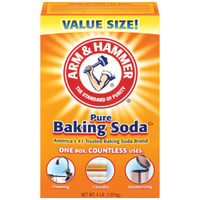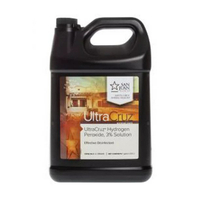How to remove common stains from every type of kitchen countertop
An expert guide to cleaning different types of stains from kitchen countertops to keep them clean and damage-free


Your kitchen countertops endure spills, splatters, and stains on a daily basis from prepping, cooking, and dining, which is why knowing the proper way to clean common stains from your countertops is essential to preserve their beauty and longevity.
While this may seem a simple task, using the wrong methods and products when cleaning your kitchen countertop may lead to damage. But fear not! We asked experts for their cleaning tips for common stains and techniques for various countertop materials.
These are the eight techniques they recommended to clean your kitchen surfaces – from removing coffee stains to hard water stains and everything in between.
How to remove common stains from countertops
'Removing stains from a countertop isn’t always an easy task as you risk damaging the material the worktop is made from, especially if it’s an expensive one, so it's essential to follow some specific steps and bear in mind that the material from which the worktop is made is a key factor when removing stubborn spots,' says Polya Petrova, a kitchen cleaning professional at Fantastic Services.
1. Targeting organic stains
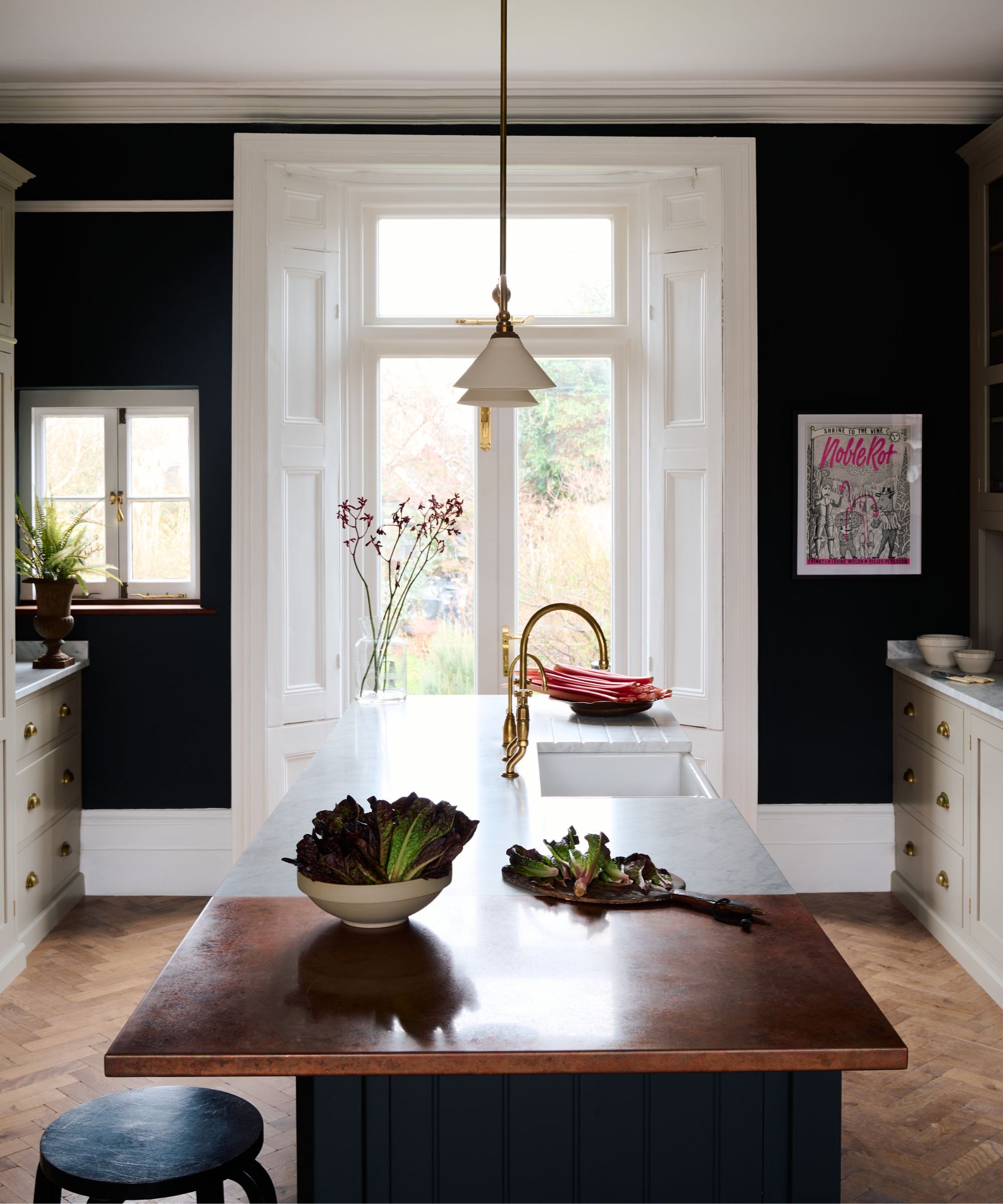
Organic stains, such as red wine, coffee, or food spills, are common culprits on countertops.
'A gentle yet effective solution involves creating a mixture of mild dish soap and warm water,' recommends Karina Toner, operations manager at Spekless Cleaning. 'This solution helps to break down organic residues without damaging the countertop surface. Remember to blot rather than scrub when cleaning to prevent spreading the stain.'

Karina is the Operations Manager at Spekless Cleaning, a trusted maid service based in Washington D.C. The team has over five years of experience providing top-quality cleaning services for both residential and commercial clients. Karina oversees every aspect of the business, ensuring that every client gets the same top-notch service and a spotless clean every time.
2. Tackling tougher stains

Stubborn stains like ink, oil, or grease require more intensive cleaning techniques.
'Cleaning with baking soda combined with water to form a paste, serves as a powerful natural abrasive for lifting tough stains,' explains Karina Toner. 'Alternatively, a mixture of hydrogen peroxide and flour can effectively target oil-based stains. These methods penetrate deep into the pores of the countertop material, ensuring thorough stain removal.'
Arm & Hammer Pure Baking Soda, 4 lb | $2.73 at Walmart
Having baking soda on hand as one of your cleaning supplies means you can create a cleaning paste as soon as you notice spills.
Hydrogen Peroxide 3% | Was $32.88, now $13.95 at Walmart
This industrial one-gallon container of hydrogen peroxide is perfect for cleaning and is more affordable than buying lots of little bottles from the drugstore.
3. Combatting hard water stains

Hard water stains are a common nuisance on countertops, particularly in regions with mineral-rich water.
'A solution of equal parts water and white vinegar effectively dissolves hard water deposits, leaving countertops sparkling clean,' explains Karina Toner. 'To prevent future buildup, homeowners should wipe down countertops regularly with a microfiber cloth and distilled water, avoiding harsh chemical cleaners that can exacerbate the problem.'
4. Addressing rust stains

'Rust stains, often caused by metal objects left on countertops, require prompt attention to prevent permanent discoloration,' advises Karina Toner. 'Lemon juice or vinegar, when applied directly to the stain and left to sit for several minutes, can effectively dissolve rust deposits.
A commercial rust remover formulated for countertops can provide a more robust solution for stubborn rust stains. However, before using a rust remover like this one from Amazon, be sure to test the solution in a small, inconspicuous spot on your countertop to test whether it will cause any damage to the material.
5. Removing food coloring stains
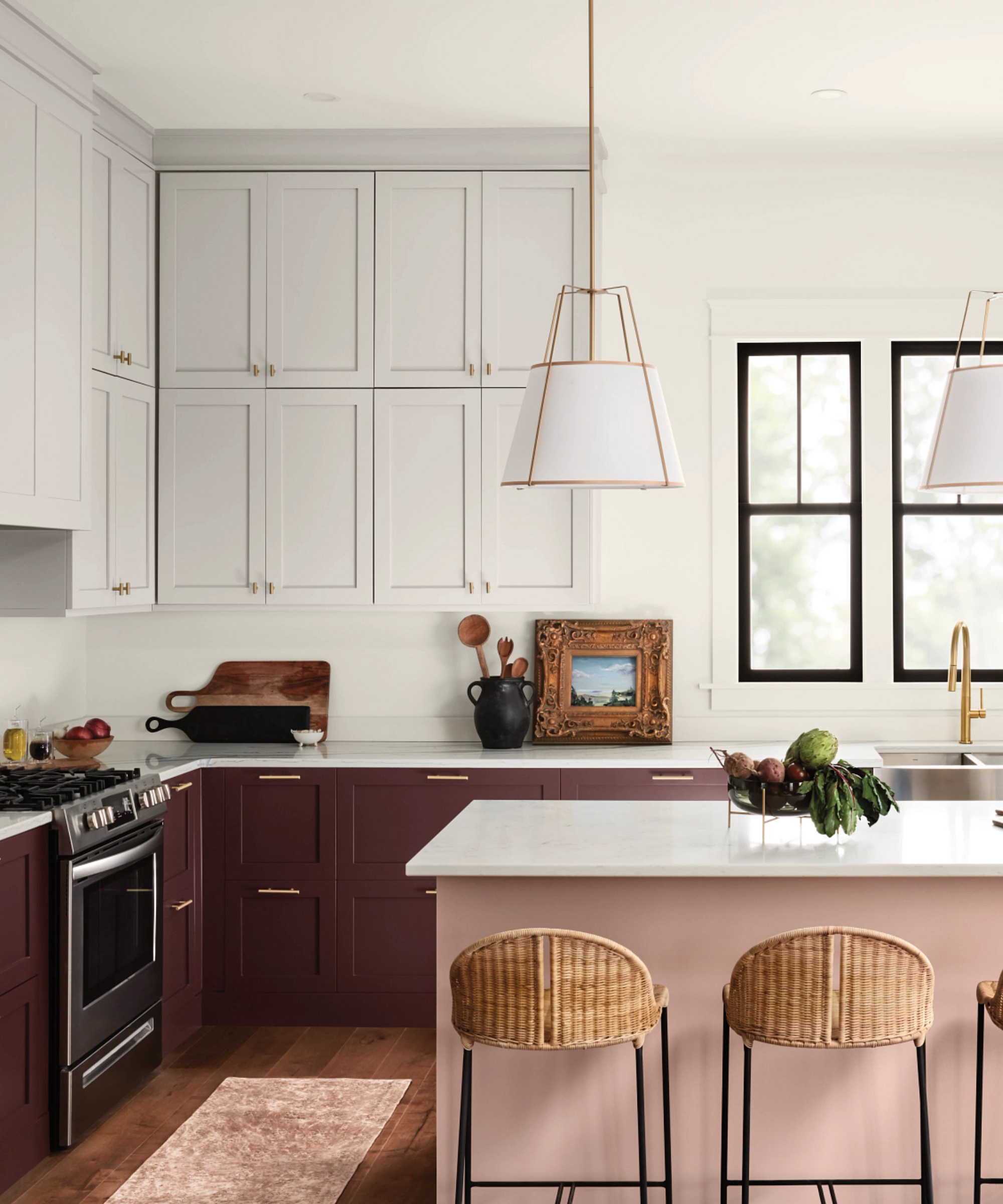
'Food coloring stains pose a unique challenge due to their vibrant pigments and tendency to penetrate porous surfaces,' explains Karina Toner. 'A mixture of hydrogen peroxide and baking soda, when applied to the stained area and left to soak, can gradually lift food coloring stains without damaging the countertop.
'Alternatively, oxygen bleach, diluted in water according to package instructions, offers a gentle yet effective solution for stubborn stains.'
6. Establish a regular maintenance routine
Establishing a regular maintenance routine is essential for preserving the aesthetics and longevity of your countertops over time.
'Daily wiping with a microfiber cloth and a mild, pH-neutral cleaner helps remove surface grime and prevents stains from setting in,' says Karina Toner. You can use this Granite Gold daily cleaner from Amazon.
'Furthermore, periodic deep cleaning sessions, using specialized countertop cleaners or homemade solutions, can effectively eliminate embedded dirt and maintain the countertop's original luster.'
7. Understanding countertop materials
'Countertops come in various materials like granite, marble, quartz, and laminate, each requiring a tailored approach to stain removal.
'Granite and marble, for instance, are porous and susceptible to etching from acidic substances, while quartz is non-porous and more resistant to staining,' explains Karina Toner. 'By understanding the unique characteristics of each material, homeowners can select appropriate cleaning methods without compromising the surface integrity.'
Quartz Countertops

'Quartz Countertops are non-porous, so they don’t stain as easily as other countertop materials. To clean quartz, you can use dish soap to remove grease stains and a paste made of baking soda and water to remove other stains,' recommends Mallory Micetich, home expert at Angi.
'If the stain is particularly difficult to remove, spread the baking soda and water paste onto it, cover it in plastic wrap, and let it sit for 24 hours before wiping it away.'
Laminate Countertops
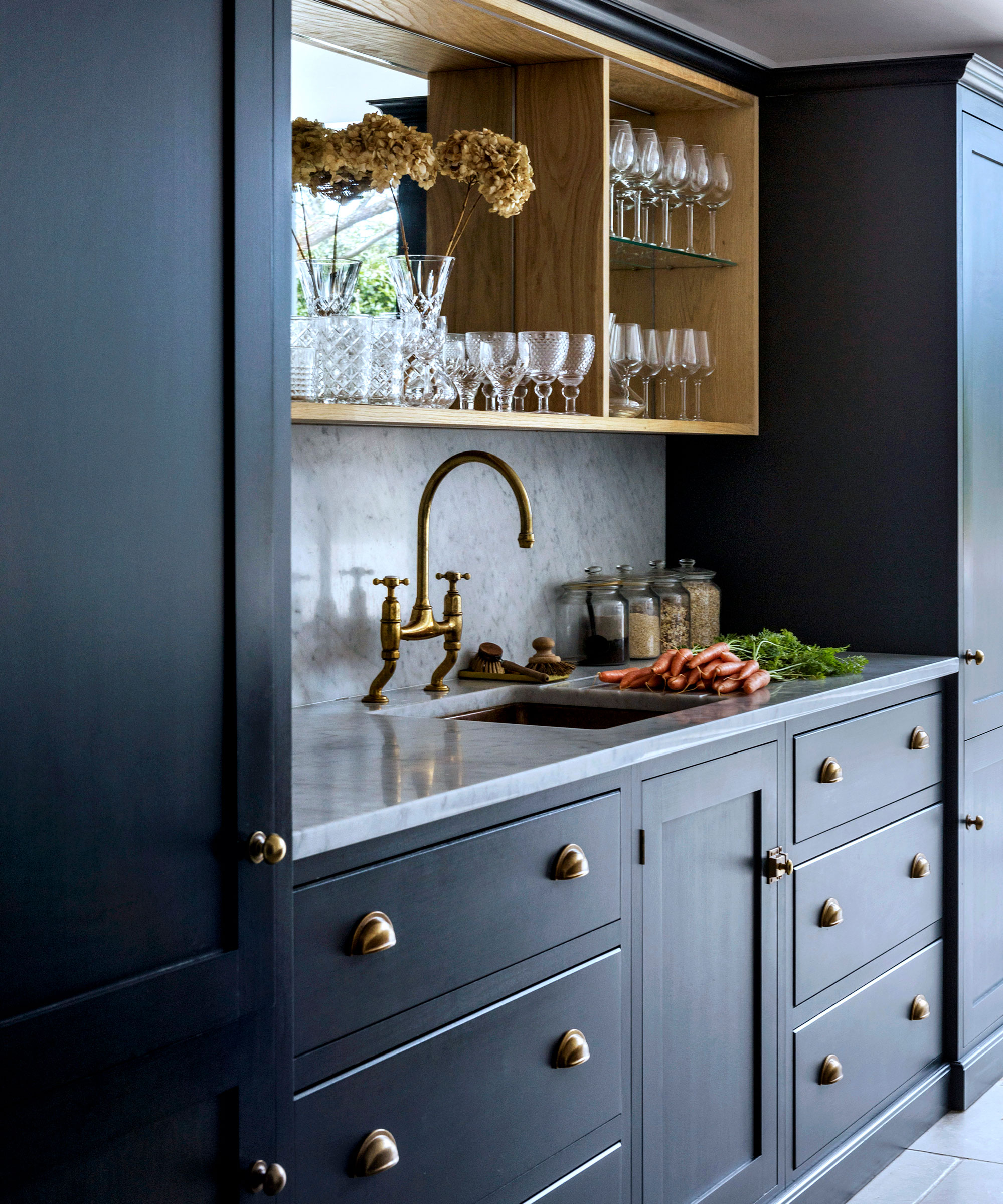
Laminate countertops are generally resistant to stains; however, their susceptibility to stains will depend on factors such as the quality of the laminate, its texture, and the presence of protective coatings.
For stains, clean your laminate countertops with an all-purpose or kitchen cleaner. You can use this Lysol all-purpose cleaner spray from Walmart.
'If the surface is still stained, apply a paste of baking soda and water and let it sit for a few minutes before wiping it away,' suggests Mallory Micetich.
Granite Countertops

Like quartz, granite responds best to a paste of baking soda and water.
'To clean granite countertops to remove stains, apply the paste to the affected area, cover it with plastic wrap, and let it sit overnight,' recommends Polya Petrova. 'Finally, wipe off the paste and rinse the area. Usually, when you have stains caused by acidic substances like fruit and citrus juice, baking soda with a few drops of hydrogen peroxide gives great results.'
Butcher-block Countertops
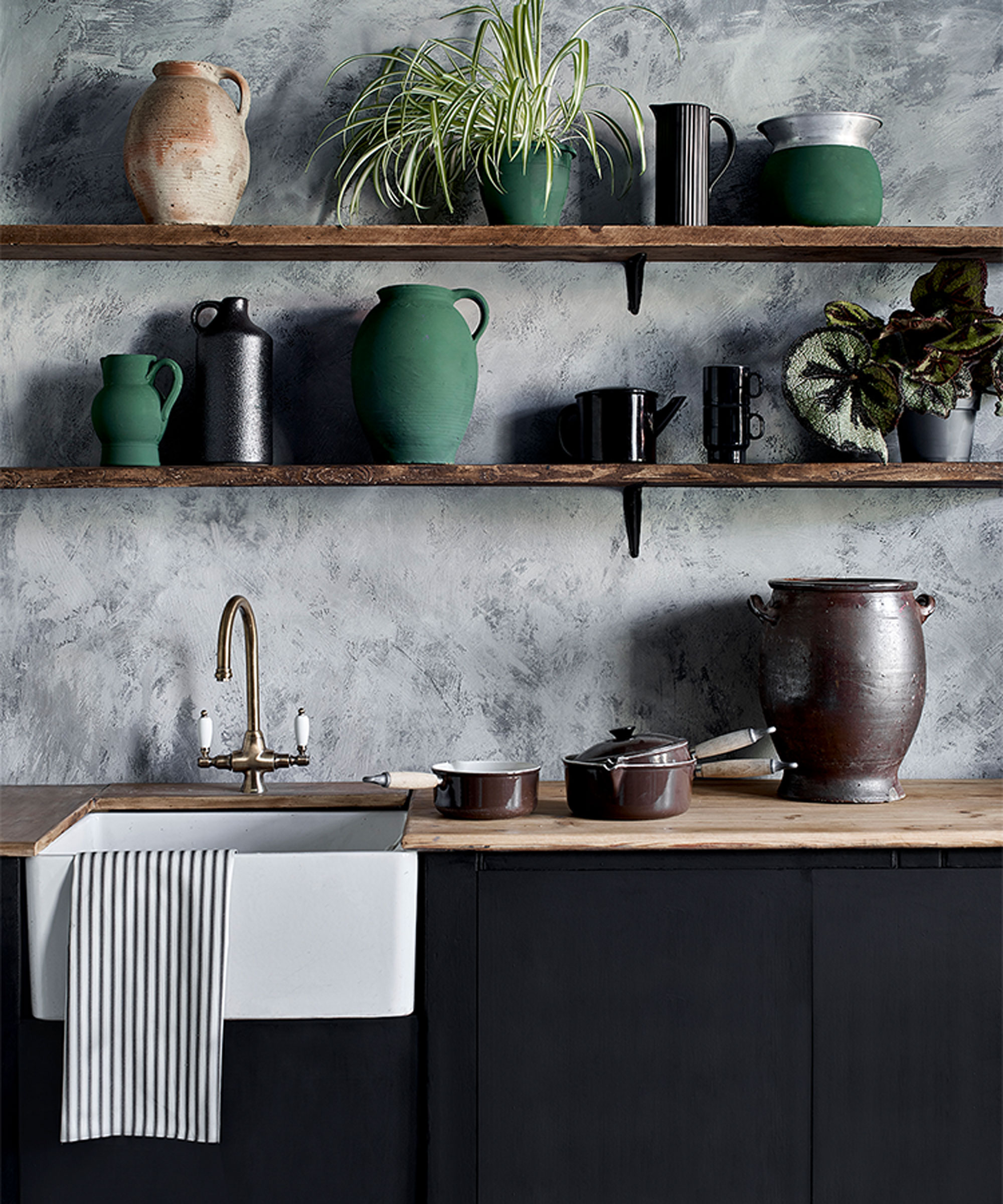
'Butcher-block countertops are prone to staining over time,' warns Mallory Micetich. 'Be gentle when cleaning your butcher-block countertops and avoid bleach and harsh cleaners. To remove stains, apply a solution of a quarter cup of water and a teaspoon of vinegar. Use a sponge to wipe the mixture away and repeat as necessary.'
Concrete Countertops
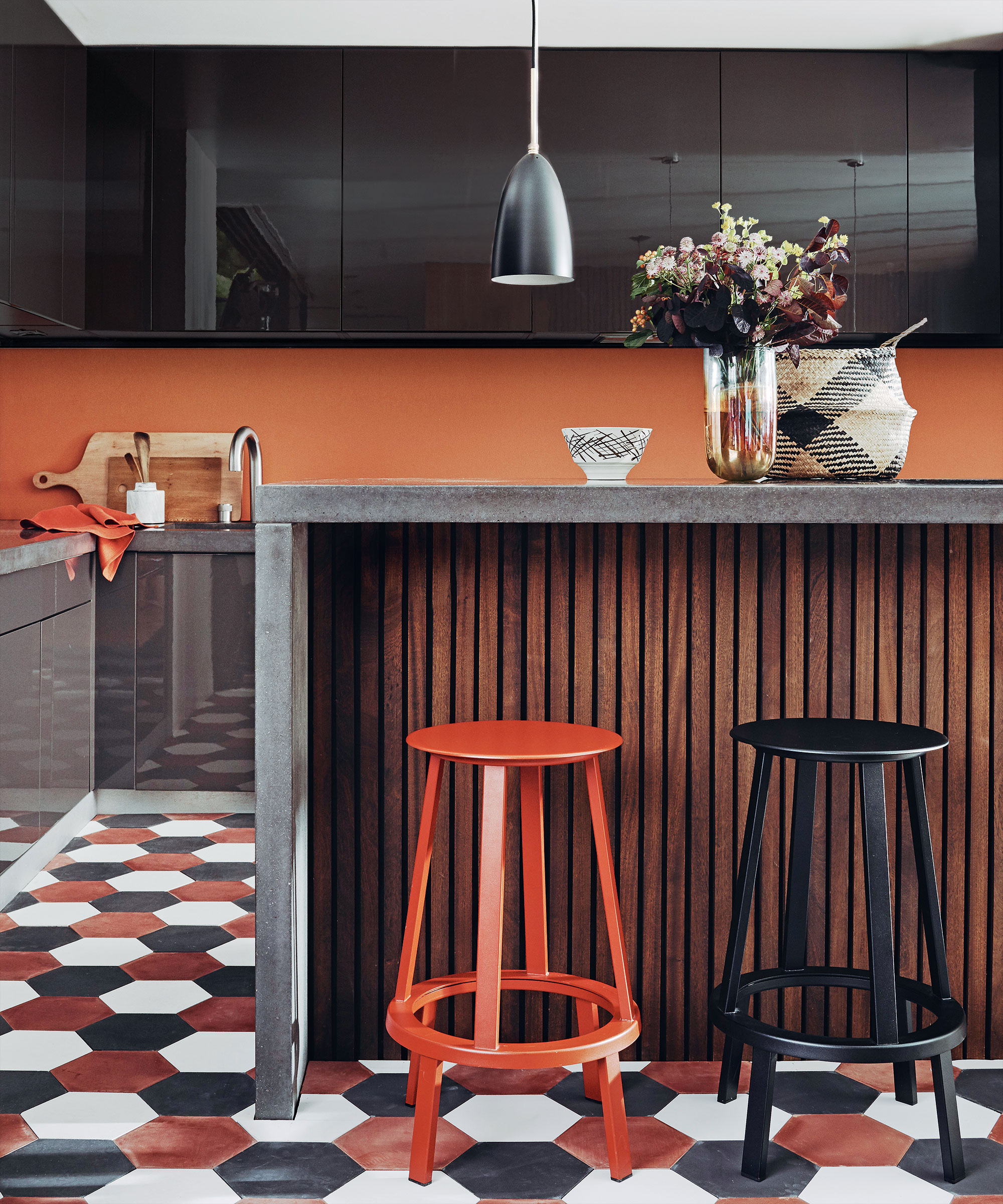
'Removing stubborn stains from this kind of material requires sprinkling baking soda immediately after you notice the stain and then letting it absorb the residue,' explains Polya Petrova. 'Afterwards, rinse with water and mild soap. Alternatively, for general spots, use a mixture of baking soda and water or hydrogen peroxide.'
Stainless steel Countertops
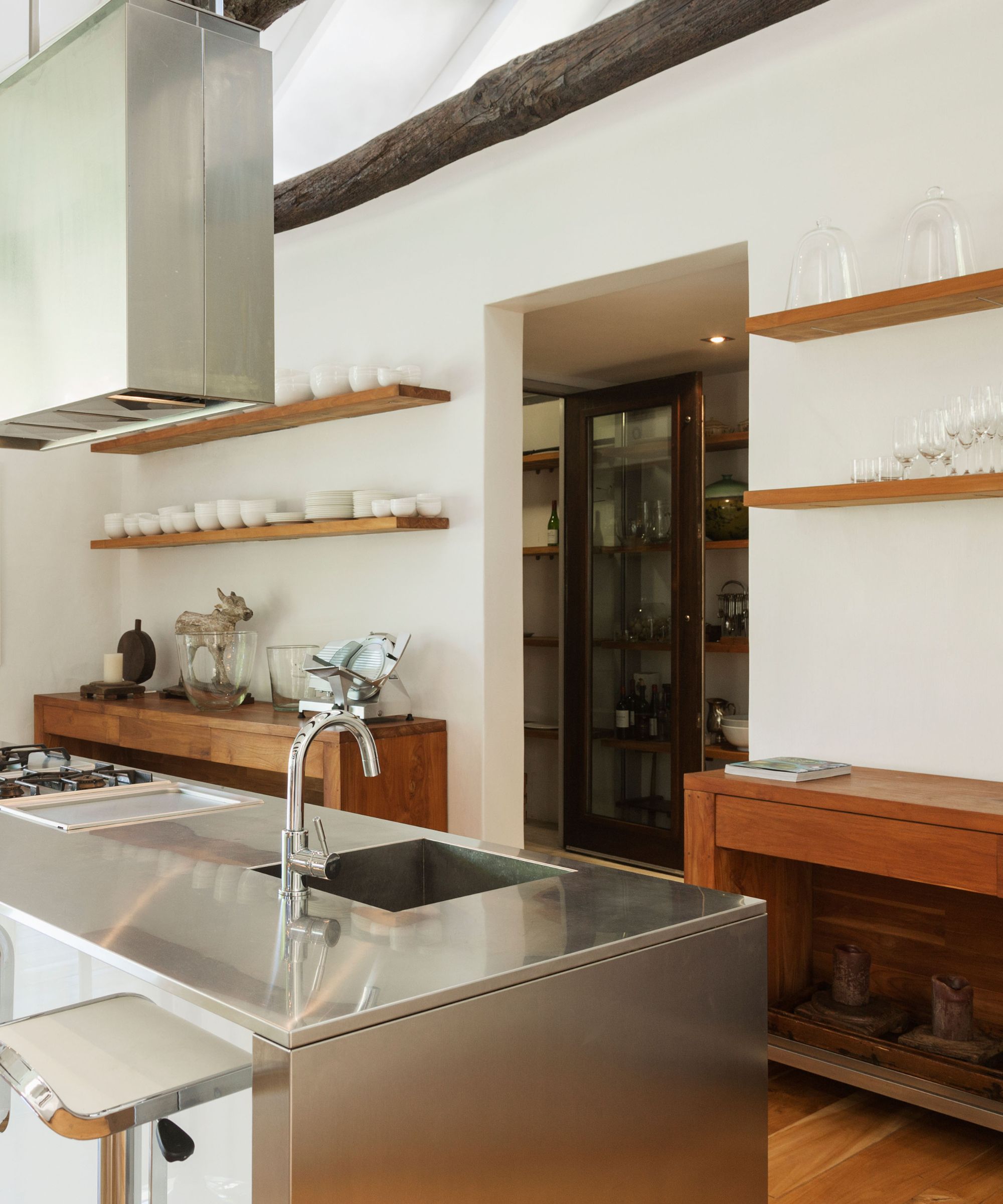
Stainless steel worktops are highly resistant to stains compared to other countertop materials. Their non-porous surface makes it difficult for substances to penetrate and cause stains. However, hard water stains are a common issue with these worktops.
'For stains caused by hard water, rust, or grease on stainless steel countertops, clean with vinegar or lemon juice, let it sit, and wipe it clean,' recommends Polya Petrova. 'Remember to test any cleaning solution on a small countertop area before applying it to the entire worktop.'
8. Preventative measures
'While effective stain removal techniques are invaluable, proactive prevention is key to maintaining pristine countertops,' says Karina Toner.
'Countertops benefit from regular sealing to maintain their resilience against stains and spills. A high-quality sealant is a protective barrier, preventing liquids from penetrating the surface and causing discoloration. Apply sealant periodically, following manufacturer recommendations, to ensure optimal protection.
'Additionally, encouraging household members to use cutting boards, trivets, and coasters can minimize direct contact between countertops and potentially staining substances.'
In cases where stains persist despite DIY efforts, consult professional cleaners to restore and maintain your countertops so you don't have to replace them, which will be costly.
Sign up to the Homes & Gardens newsletter
Design expertise in your inbox – from inspiring decorating ideas and beautiful celebrity homes to practical gardening advice and shopping round-ups.

Lola Houlton is a news writer for Homes & Gardens. She has been writing content for Future PLC for the past six years, in particular Homes & Gardens, Real Homes and GardeningEtc. She writes on a broad range of subjects, including practical household advice, recipe articles, and product reviews, working closely with experts in their fields to cover everything from heating to home organization through to house plants. Lola is a graduate, who completed her degree in Psychology at the University of Sussex. She has also spent some time working at the BBC.
-
 The rumours are true, the NYC trend for fringes and trimmings is actually happening – they are the secret weapon for making a room look expensive
The rumours are true, the NYC trend for fringes and trimmings is actually happening – they are the secret weapon for making a room look expensiveA trim or a ruffle is the finishing touch that can take a scheme from ordinary to the extraordinary in an instant
By Jennifer Ebert Published
-
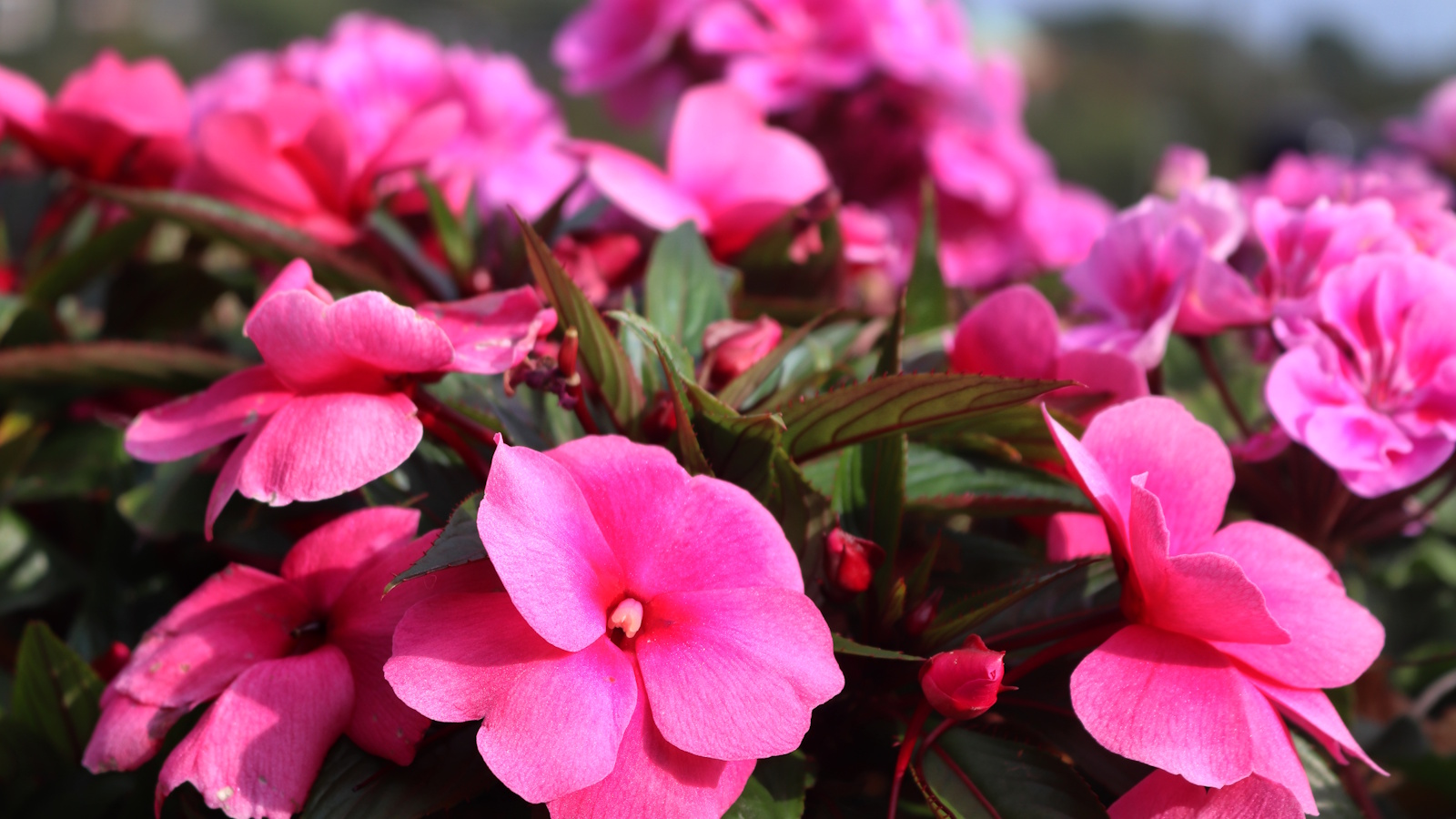 How to grow impatiens – garden experts reveal the secrets to growing this shade-tolerant, sparkling summer plant
How to grow impatiens – garden experts reveal the secrets to growing this shade-tolerant, sparkling summer plantBoth 'Busy Lizzie' and 'New Guinea' impatiens can thrive in shady yards
By Ellen Wells Published
